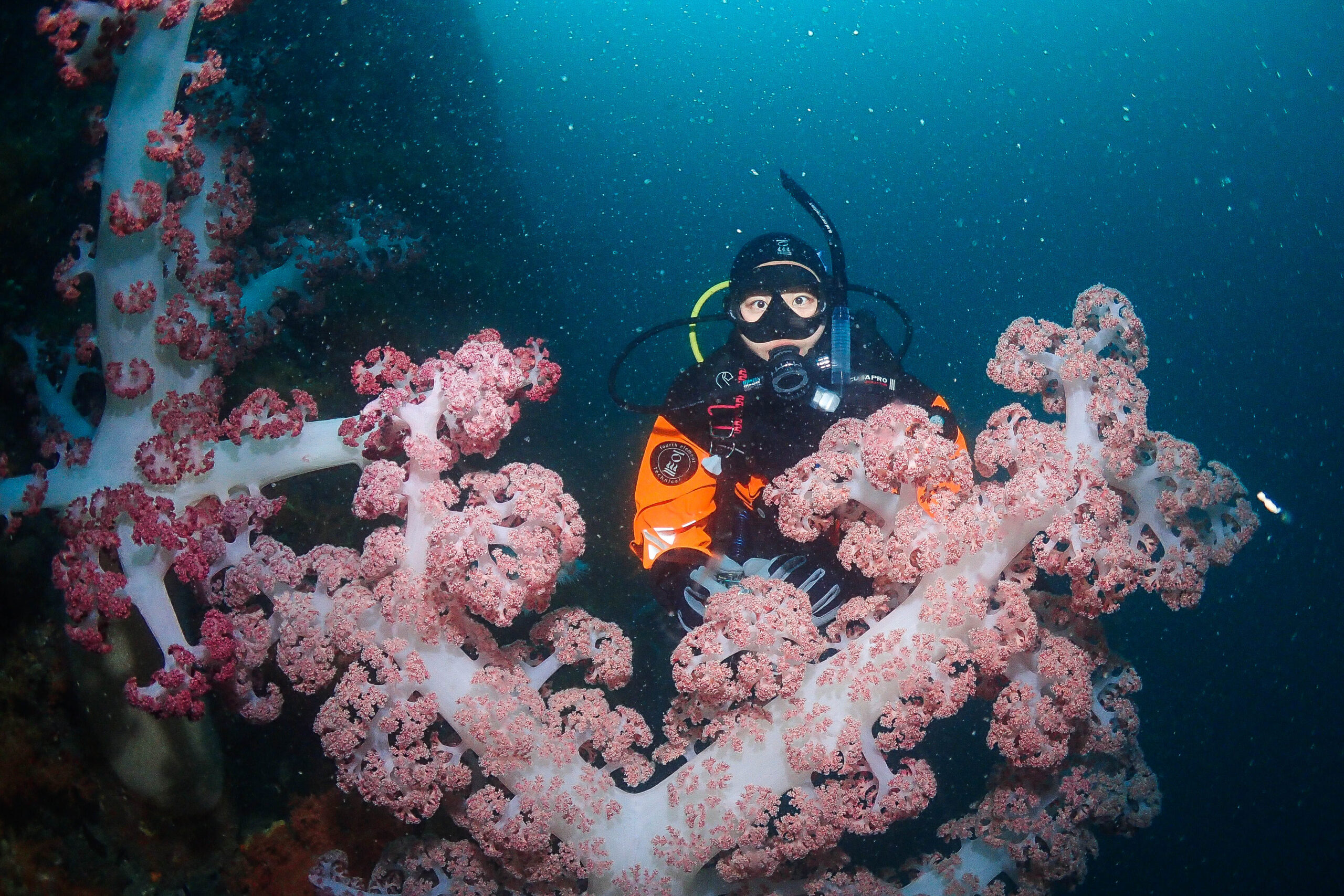If you are a diver or plan to become one in the future, a phrase you will often hear is ‘Never Hold Your Breath’. Most divers are aware of the risks that can occur when they hold their breath and ascend. But what if you don’t ascend or descend, what if you just stay at the same depth? Recently, I decided to write an article on this subject based on a question from my student.

You might think that holding your breath is only dangerous during ascents because of the risk of injury from over-expansion of the lungs. But holding your breath, even at the same depth, is dangerous.
While staying at a constant depth minimizes the chance of injury from overexpansion, your body still needs to expel carbon dioxide and maintain a natural breathing rhythm. You may not suffer immediate damage, but you are putting yourself at risk of the conditions I’m about to describe (CO2 buildup, inefficient breathing and fatigue). You are also unknowingly inviting a bad habit that could cause you problems in the future.

We know that some divers have the bright idea of holding their breath at constant depths to minimize air consumption. It may sound tempting when you first read about it, especially if you consume a lot of air. However, holding your breath or skipping breathing will do you more harm than good.
One of these harms is CarbonDioxide Accumulation
When you hold your breath, you stop exhaling carbon dioxide (CO2), a by-product of breathing. Not breathing leads to a build-up of carbon dioxide in your body and can lead to CO2 toxicity. High CO2 levels can lead to dizziness, nausea and even loss of consciousness. You certainly don’t want to deal with any of this underwater.
Inefficient breathing
When you skip breathing, the amount of Carbon Dioxide increases and your body starts to feel more breathless without realizing it. As you struggle to get rid of the increased CO2, you start to take shallow and frequent breaths instead of deep breaths. This inefficient breathing cycle increases your air consumption in the long run and causes unnecessary stress and fatigue.
Breath-holding as a bad habit
Let’s say you breathe by skipping on your dives and it seems to work for you – you think your air consumption is getting better. You are sure there is no risk as long as you don’t ascend. Then one day, during a dive, something distracts you – a sea creature, an equipment problem or a friend who needs help.
In a stressful situation, it can become a subconscious habit to skip breathing. If you hold your breath while ascending even a small distance, you can suffer an over-expanding lung injury such as pulmonary barotrauma. Remember, the deeper you go, the more compressed the air in your lungs becomes. If you ascend even a few meters without breathing, the compressed air can expand rapidly, causing serious damage.
Let’s also remember that we are sport diving for fun.
Constantly focusing on holding your breath or breathing less adds unnecessary mental and physical stress to your dive. Instead of enjoying your surroundings and managing your dive safely, you concentrate on your breathing. This stress will reduce your enjoyment of the dive.
Remember to breathe slowly and deeply without interruption and NEVER HOLD YOUR BREATH!
Have a safe and enjoyable dive.




